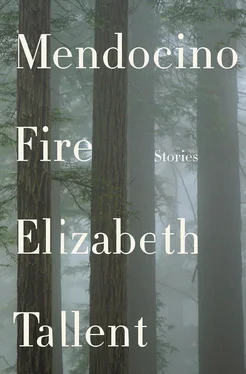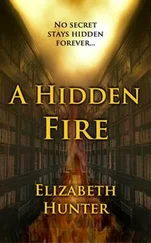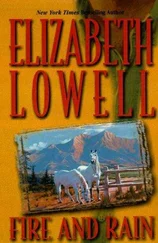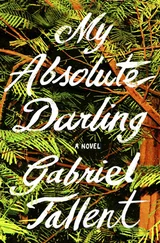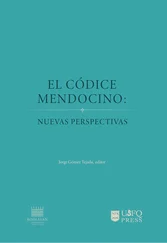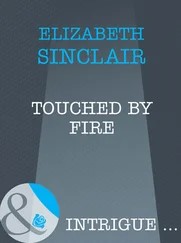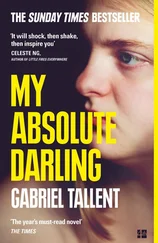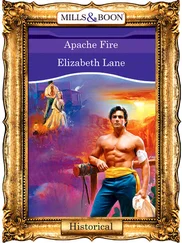My scribbled-in Middlemarch stayed on the nightstand by the twin bed, and I had hung my clothes in the closet, but that didn’t mean I felt at home in the room, with its dresser whose bottom drawer was jammed with photos. What did it mean that this drawer, alone in all the house, had not been systematically sorted? Near the bottom of the slag heap was an envelope of tintypes: from a background of stippled tarnish gazed a poetic boy, doleful eyes and stiff upright collar, and I wanted to take it to him and say Look, you in 1843 , but that would prove I’d been rifling through the drawer, and even if he hadn’t said not to, I wasn’t sure it was all right. His childhood was there, his youth, the face of his first author photo. Houses and cities before this one. His women, too, and I dealt them out across the floor, a solitaire of disparate faces: I wanted to know their stories. No doubt I did know pieces, from his work, but here they were, real, and I would have listened to them all if I could, would have asked each one How did it end? When he was writing he would sometimes knock and come in and rummage through the pictures, whose haphazardness replicated memory’s chanciness. As with memory there was the sense that everything was there, in the drawer — just not readily findable. Disorder is hospitable to serendipity; was that the point? When he found the photo he wanted he didn’t take it back to his desk but stayed and studied it, and when he was done he dropped it casually back into the hodgepodge. If I opened the drawer after he’d gone, there was no way to guess which photo he’d been holding.
There were things that happened during sex that felt like they could never be forgotten. Recognitions, flights of soul-baring mutual exposure, a pitch of ravishment that seemed bound to transform our lives. But, sharing the setting of so many hours of tumult — the bed — and tumult’s instruments — our two bodies — these passages lacked the distinctness of event and turned out to be, as far as memory was concerned, elusive. And there was sadness in that, in coming back to our same selves. By midsummer, something — maybe the infuriating inescapability of those selves, maybe an intimation of the monotonousness sex could devolve into, if we kept this up — caused us to start turning sex into stories. Sex with me as a boy, the one and only boy who ever caught his eye, a lovely apparition of a boy he wanted to keep from all harm, but who one day was simply gone; sex as if he was a pornographer and I was a schoolgirl who began, more and more, to conjure long-absent emotions, tenderness, possessiveness, even as the schoolgirl became more and more corrupt, telling sly little lies; the sex we would have if, after ten years’ separation, we saw each other across a crowded room; sex as if I had just learned he’d been unfaithful to me with one of his exes; sex as if I’d been unfaithful; the sex we would have if we broke up and after ten years ended up in the same Paris hotel for some kind of writers’ event, a book signing maybe, and sometimes it was his book and sometimes it was mine; sex with me in the stockings and heels of a prostitute, with him as a cop, me as a runaway desperate for shelter, with him as a woman, with the two of us as strangers seated near each other on a nightlong flight.
These games always began the same way. Ceremonious, the invitation, proper and respectful in inverse proportion to the derangement solicited. What if you are. What if I am. We never talked about this, and though either could have said Let’s not go there , neither of us ever declined a game described by the other. The inventing of roles was spontaneous, their unforeseeableness part of the game’s attraction, but a special mood, an upswell of lurid remorse, alerted me whenever I was about to say And then after forever we see each other again. In these scenarios where we had spent years apart, the lovely stroke was our immediate recognition of each other — not, like other emotions we played at, a shock, not a wounding excitement, but an entrancing correction to loss. All wrongs set right. And we look at each other. And it’s like—
While he wouldn’t drink any coffee that wasn’t made from freshly ground Italian dark roast and he had a taste for expensive chocolate, he seemed mostly indifferent to food and never cooked. What had he done when he was alone? Was it just like this, cereal, soup from cans, microwaved enchiladas? Should I try to make something — would that feel, to him, to me, stickily wife-y? He liked bicycling to the farmer’s market and would come back with the ripest, freshest tomatoes. He taught me to slather mayonnaise across bakery bread, grinding black pepper into the exposed slices before covering them with another slice, taking fast bites before the bread turned sodden, licking juice from wrists and fingertips, the tomatoes still warm from basking in their crates at the market, their taste leaking acid-bright through the oily mayonnaise blandness, the bread coarse in texture, sweet in fragrance. There was at least a chance he’d never told any other lover about tomato sandwiches. After weeks of not caring what I ate, I had found something I couldn’t get enough of, and as soon as I finished one sandwich I would make another, waiting until he was out to indulge, and it didn’t matter how carefully I cleared away the traces of my feast, he could tell, he was quick with numbers and probably counted the tomatoes.
Really the entire cottage was saturated with his vigilance; his keen eye for detail was now directed at me. When I went elsewhere, tried working in a café (not his) for example, it was as if the house were still with me, its atmosphere extending to the unrocking table where I sat with my books and my legal pad and my cup of coffee with cream and two teaspoons of brown sugar stirred in. At that table I could not do a dirt road in New Mexico. I could not do a wife steeping in cold bathwater while her husband scissored the heads from poppies and black-eyed Susans. Neither could I do my new existence. He would not walk into a story of mine. He could not have sat down in an armchair of my imagining, or awakened in a bed beside a narrator in some way me. The world we were in was replete with narration, and it was his. After a couple of hours, I gave up trying.
He was sitting with Billy on Billy’s front steps and greeted me by saying, “Everest redux.” Billy said, “Can I have a kiss for luck? Leaving for Kathmandu early in the A.M. Oh, and forgot to tell you”—turning to him—“Delia’s going to house-sit. I don’t want to be distracted on the Icefall by visions of Fats wasting away in some kennel.” Fats was his skinny, hyper border collie. “Only good vibes. Last year, when I got up into the death zone, I hallucinated my grandmother.” Exaggerating his Texas drawl: “‘Time you git back home.’ Actually one of the Sherpas looked a whole lot like her. Brightest black eyes. See right through bullshit, which you want in a Sherpa or grandma. I lied a lot when I was little, like practice for being in the closet. So, Delia. Fats loves her. So, she’ll be staying here.” He said, “Always smart not to leave a house empty,” but I knew Billy was curious if I would show that I minded, because Delia was his most recent ex, the lover before me, and thinking Only good vibes, right , I said, “Fats will be happy” and kissed Billy on his sunburned forehead.
I gave up on the coffee shop, but when I tried writing in the afternoons in the guest bedroom, sitting up in the twin bed with a legal pad on my knees, he would wander in and start picking up various objects — my traveling alarm clock, my hairbrush — and I would drop the legal pad and hold out my arms. Maybe because he was becoming restless, or was troubled by what looked, in me, like the immobilizing onset of depression, he talked me into going running, and that was how we spent our evenings now, on an oval track whose cinders were the old-school kind, sooty black, gritting under running shoes. On days after a weekend meet, the chalk lines marking the lanes were still visible. The infield was grass, evenly mown, and after running he liked to throw a football there, liked it even more than he ordinarily would have because football figured in the novel he was writing, about two brothers whose only way of connecting with each other was throwing a football back and forth, and he needed the sense impressions of long shadows across summer grass and the grain of the leather to prompt the next morning’s writing. When he held a football, his tall, brainy self came together, justified. Pleasantly dangerous with the love of competition, though at the moment all he had to compete with was me. When he cocked his arm back and took a step, tiny grasshoppers showered up. The spiral floated higher, as if the air were tenderly prolonging its suspension, and took its time descending. The thump of flight dead-ending against my chest as I ran pleased me. He had trouble accepting that I could throw a spiral, though he might have known my body learned fast. I couldn’t throw as far, and he walked backward, taunting for more distance. Taunting I took as a guy-guy thing; my prowess, modest as it was, made me an honorary boy, and was sexy.
Читать дальше
